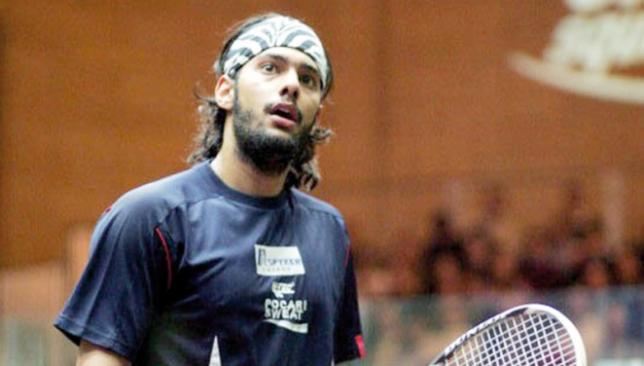
The game of squash was created in Harrow, England in 1830 as a hybrid between older versions of handball and tennis. Instead of slapping a ball with their hand, they thought some sort of tennis racket might be more humane.
It’s now played by nearly 17 million people, on nearly 50,000 courts around the world, throughout 185 countries. The game is on a very short-list, with wrestling and baseball, to be included as a new discipline at the 2020 Summer Olympics, and the UAE’s No1 player, Adil Maqbool, certainly feels he should be just about ready to retire on the back of it – should he and squash qualify.
After taking a couple of years off to concentrate on his IT career, when he was world ranked 66, Maqbool has come back with a real focus to climb back up the rankings and make qualification for 2020 a formality.
Sport360°’s Rory Coen caught up with the current world No117 following his recent win at the Abu Dhabi Open at the Beach Rotana Hotel.
From where did you get your interest in squash?
He used to take me to the club where he used to coach when I was almost a year old to expose me to the game and then I started getting proper on–court sessions with him when I was around three.
What is the greatest benefit in playing the sport?
One of the biggest benefits I think is that it can be played all year around no matter what the conditions are like outside. The equipment is not the expensive and is easily available. As far as the fitness aspect, studies have shown that squash is one of the toughest sports in terms of the number of calories you burn per hour. Squash is on the short-list to become an Olympic Sport for 2020.
Do you think it will get the vote? At 32, would you have a realistic chance of making these Games?
Considering it is second in the polls right now to wrestling, and that wrestling was excluded by the committee earlier, it will be very interesting to see what happens. We have all the right points in our favour, in terms of the venue allocation, draw sizes, the popularity of the sport, etc, so fingers crossed.
As we are one of the three sports on the shortlist for the 2020 Olympics inclusion, if we get in, without any doubt, every player would want to win a medal at the games more than anything else! As our current women’s world No1 Nicola David puts it, she would trade all her seven world titles for a chance at an Olympic Gold.
Most of the players currently on the tour don’t retire til they’re about 32 or 33 so you never know… I have had a few years off so I might still be playing then if the body holds up. It would be great to be involved in the Games in any capacity.
How important was your recent win at the Abu Dhabi Open?
This was my 9th Abu Dhabi Open win so it meant a great deal to me as I was born in there and I won my first Abu Dhabi Open when I was just 12, so I have a special connection with this event. My family was present with me along with my wife and 8 month old son, so it was great!
When is the World Open and will you be competing?
The World Open takes place every year and will be taking place from the 26 October to 3 November in Manchester this year. If I get back into the top 100 by over the next couple of months then I will definitely participate in it as entries are based on merit as per the PSA rankings.
Who has been your greatest opponent to date? How do you feel you fared against him? Did you play to your maximum?
I have played against a few players in the world’s top five like Karim Darwish (World No5, former world No1), Therry Lincou (Retired, former world No1), Del Harris (former world No. 2). However, my toughest match (and best performance) would have to be the quarter-final of the Australian Open in 2008 where I lost to the then world No4 David Palmer of Australia. He is a former World No1 and I did well in the first, losing out a close 11-9 score, before losing the third 11-8.
How far are you off your peak?
I have a very long way to go but I can definitely get better. Over the last eight weeks I have experienced a significant improvement as I beat Ali Ramzi 3-1 in Kuwait (two weeks ago) after losing to him 3-1 two months ago.
In the last encounter with Aamir Khan a few months back I managed to come back from 2-1 down to beat him 3-2, however in [the Abu Dhabi Open final] I beat him 11-3 11-3 11-5. I will be going through some intense training with my dad, who is also my coach, this summer and will give a big push on the international circuit in September when the season starts again.
* For breaking news, follow us on @Sport_360 or find us on Facebook.